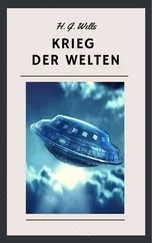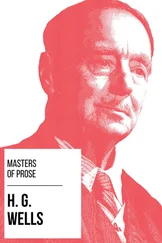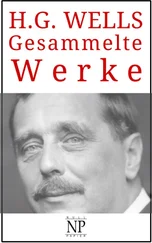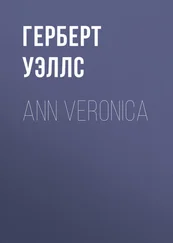And how can I get into one brief letter the complex accumulated
desires of what is now, I find on reference to my diary, nearly
sixteen months of letting my mind run on you--ever since that
jolly party at Surbiton, where we raced and beat the other boat.
You steered and I rowed stroke. My very sentences stumble and
give way. But I do not even care if I am absurd. I am a
resolute man, and hitherto when I have wanted a thing I have got
it; but I have never yet wanted anything in my life as I have
wanted you. It isn't the same thing. I am afraid because I love
you, so that the mere thought of failure hurts. If I did not
love you so much I believe I could win you by sheer force of
character, for people tell me I am naturally of the dominating
type. Most of my successes in life have been made with a sort of
reckless vigor.
"Well, I have said what I had to say, stumblingly and badly, and
baldly. But I am sick of tearing up letters and hopeless of
getting what I have to say better said. It would be easy enough
for me to write an eloquent letter about something else. Only I
do not care to write about anything else. Let me put the main
question to you now that I could not put the other afternoon.
Will you marry me, Ann Veronica?
Very sincerely yours,
"HUBERT MANNING."
Ann Veronica read this letter through with grave, attentive eyes.
Her interest grew as she read, a certain distaste disappeared.
Twice she smiled, but not unkindly. Then she went back and mixed
up the sheets in a search for particular passages. Finally she
fell into reflection.
"Odd!" she said. "I suppose I shall have to write an answer.
It's so different from what one has been led to expect."
She became aware of her aunt, through the panes of the
greenhouse, advancing with an air of serene unconsciousness from
among the raspberry canes.
"No you don't!" said Ann Veronica, and walked out at a brisk and
business-like pace toward the house.
"I'm going for a long tramp, auntie," she said.
"Alone, dear?"
"Yes, aunt. I've got a lot of things to think about."
Miss Stanley reflected as Ann Veronica went toward the house.
She thought her niece very hard and very self-possessed and
self-confident. She ought to be softened and tender and
confidential at this phase of her life. She seemed to have no
idea whatever of the emotional states that were becoming to her
age and position. Miss Stanley walked round the garden thinking,
and presently house and garden reverberated to Ann Veronica's
slamming of the front door.
"I wonder!" said Miss Stanley.
For a long time she surveyed a row of towering holly-hocks, as
though they offered an explanation. Then she went in and
up-stairs, hesitated on the landing, and finally, a little
breathless and with an air of great dignity, opened the door and
walked into Ann Veronica's room. It was a neat, efficient-looking
room, with a writing-table placed with a business-like regard to
the window, and a bookcase surmounted by a pig's skull, a
dissected frog in a sealed bottle, and a pile of shiny,
black-covered note-books. In the corner of the room were two
hockey-sticks and a tennis-racket, and upon the walls Ann
Veronica, by means of autotypes, had indicated her proclivities
in art. But Miss Stanley took no notice of these things. She
walked straight across to the wardrobe and opened it. There,
hanging among Ann Veronica's more normal clothing, was a skimpy
dress of red canvas, trimmed with cheap and tawdry braid, and
short--it could hardly reach below the knee. On the same peg and
evidently belonging to it was a black velvet Zouave jacket. And
then! a garment that was conceivably a secondary skirt.
Miss Stanley hesitated, and took first one and then another of
the constituents of this costume off its peg and surveyed it.
The third item she took with a trembling hand by its waistbelt.
As she raised it, its lower portion fell apart into two baggy
crimson masses.
"TROUSERS!" she whispered.
Her eyes travelled about the room as if in appeal to the very
chairs.
Tucked under the writing-table a pair of yellow and gold Turkish
slippers of a highly meretricious quality caught her eye. She
walked over to them still carrying the trousers in her hands, and
stooped to examine them. They were ingenious disguises of gilt
paper destructively gummed, it would seem, to Ann Veronicas' best
dancing-slippers.
Then she reverted to the trousers.
"How CAN I tell him?" whispered Miss Stanley.
Part 2
Ann Veronica carried a light but business-like walking-stick.
She walked with an easy quickness down the Avenue and through the
proletarian portion of Morningside Park, and crossing these
fields came into a pretty overhung lane that led toward
Caddington and the Downs. And then her pace slackened. She
tucked her stick under her arm and re-read Manning's letter.
"Let me think," said Ann Veronica. "I wish this hadn't turned up
to-day of all days."
She found it difficult to begin thinking, and indeed she was
anything but clear what it was she had to think about.
Practically it was most of the chief interests in life that she
proposed to settle in this pedestrian meditation. Primarily it
was her own problem, and in particular the answer she had to give
to Mr. Manning's letter, but in order to get data for that she
found that she, having a logical and ordered mind, had to decide
upon the general relations of men to women, the objects and
conditions of marriage and its bearing upon the welfare of the
race, the purpose of the race, the purpose, if any, of
everything. . . .
"Frightful lot of things aren't settled," said Ann Veronica. In
addition, the Fadden Dance business, all out of proportion,
occupied the whole foreground of her thoughts and threw a color
of rebellion over everything. She kept thinking she was thinking
about Mr. Manning's proposal of marriage and finding she was
thinking of the dance.
For a time her efforts to achieve a comprehensive concentration
were dispersed by the passage of the village street of
Caddington, the passing of a goggled car-load of motorists, and
the struggles of a stable lad mounted on one recalcitrant horse
and leading another. When she got back to her questions again in
the monotonous high-road that led up the hill, she found the
image of Mr. Manning central in her mind. He stood there, large
and dark, enunciating, in his clear voice from beneath his large
mustache, clear flat sentences, deliberately kindly. He
proposed, he wanted to possess her! He loved her.
Ann Veronica felt no repulsion at the prospect. That Mr. Manning
loved her presented itself to her bloodlessly, stilled from any
imaginative quiver or thrill of passion or disgust. The
relationship seemed to have almost as much to do with blood and
body as a mortgage. It was something that would create a mutual
claim, a relationship. It was in another world from that in
which men will die for a kiss, and touching hands lights fires
that burn up lives--the world of romance, the world of
passionately beautiful things.
But that other world, in spite of her resolute exclusion of it,
was always looking round corners and peeping through chinks and
crannies, and rustling and raiding into the order in which she
chose to live, shining out of pictures at her, echoing in lyrics
Читать дальше












